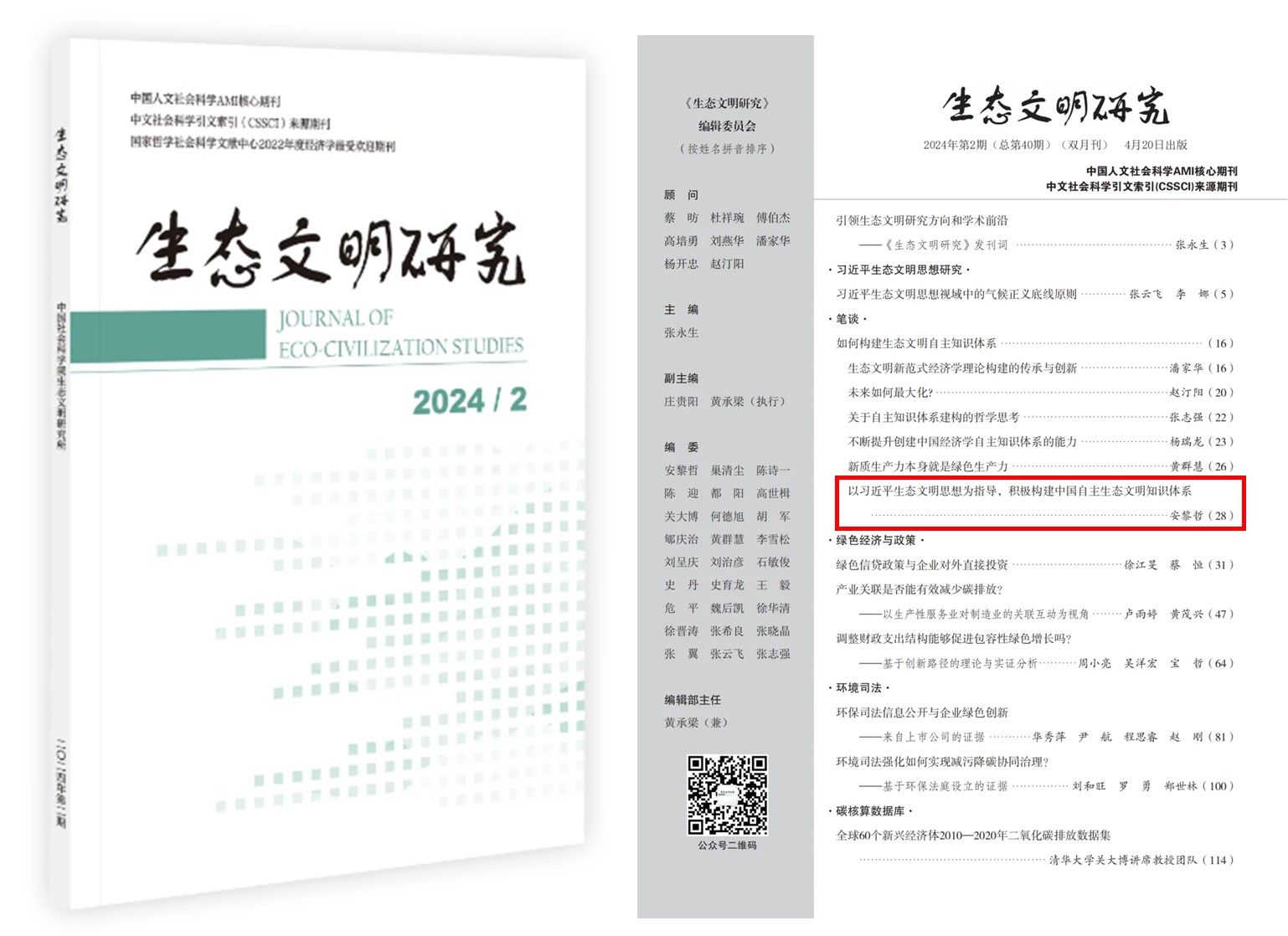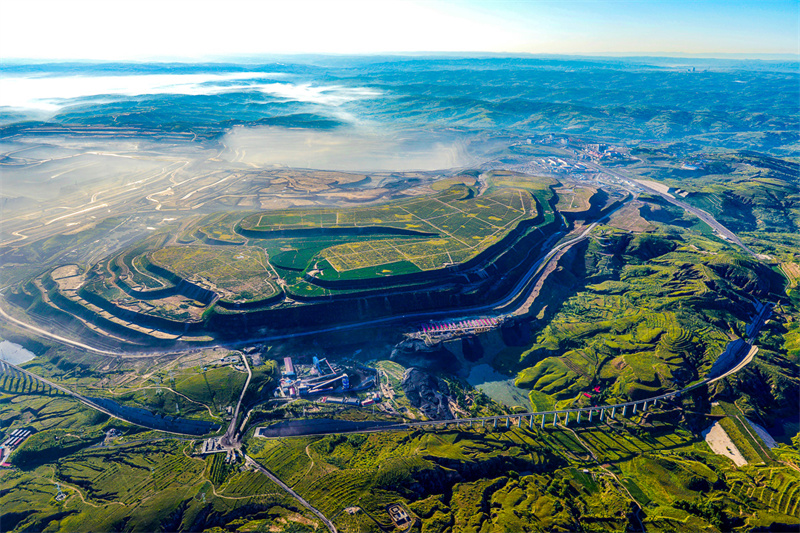Latest news
Recently, Journal of Ecological Civilization, formerly known as Urban and Environmental Studies, featured a piece by Professor An Lizhe, the President of Beijing Forestry University. The paper, titled "Advancing Independent Ecological Civilization Knowledge System under the guidance of Xi Jinping Thoughts on Ecological Civilization", delves into the pursuit of crafting a distinct Chinese blueprint for ecological civilization.

Xi Jinping pointed out at the speech at a ceremony marking the centenary of the Communist Party of China: “As we have upheld and developed socialism with Chinese characteristics and driven coordinated progress in material, political, cultural-ethical, social, and ecological terms, we have pioneered a new and uniquely Chinese path to modernization, and created a new model for human civilization.”
Furthermore, as reported during the 20th National Congress of the Communist Party of China, Chinese modernization is envisioned as one that harmonizes humanity with nature. To comprehensively build a modern socialist country, it is imperative to respect, adapt to, and protect nature. We must steadfastly uphold and implement the concept that lucid waters and lush mountains are invaluable assets, bearing in mind the importance of maintaining harmony between humanity and nature throughout our development planning.
In An's article, he stated that ecological civilization is pivotal for the comprehensive development of China into a modern socialist nation. Moreover, China's approach to ecological civilization is reshaping the global landscape and offering a novel blueprint for human progress. The ideas and substantial endeavors in ecological civilization, spearheaded by China, are set to amplify and refine the evolving paradigm of human civilization. Adhering to the principles of Xi Jinping Thoughts on Ecological Civilization is essential as we develop an independent knowledge system for China’s ecological initiatives.
Firstly, Xi Jinping Thoughts on Ecological Civilization exemplify the fusion of Marxist ideas on human-nature relations with traditional Chinese culture, particularly ecological culture. We are committed to embracing these principles as our cornerstone, striving to develop comprehensive educational frameworks centered around these ideas. Pioneering institutions like Beijing Forestry University are at the forefront of integrating these concepts into higher education curriculums, signifying a notable advancement in this initiative.

Secondly, it is crucial to construct a self-sustained Chinese ecological civilization knowledge system while understanding the deep connections between Xi Jinping's ecological and cultural thoughts. China’s ecological endeavors, deeply rooted in the enduring heritage of its culture, aim to blend traditional values with modern advancements, thereby enriching the theoretical and practical applications of Xi Jinping's philosophies. This approach is in line with the remarks during Xi's visit to Renmin University of China in Beijing where he advocated for the integration of philosophy and social sciences imbued with Chinese characteristics into the global academic community. He emphasized that prioritizing the development of philosophy and social sciences with Chinese characteristics principally involves forging an independent knowledge system."

Thirdly, developing a self-reliant Chinese ecological civilization knowledge system necessitates adopting a global perspective and selectively assimilating and discarding elements from the ecological discourse of Western industrial civilization. We must prioritize, both conceptually and strategically, the advancement of an academic and discourse framework that supports ecological civilization, especially in the new era. This involves advocating for and establishing a comprehensive and scientifically robust system that addresses global ecological concerns. The initial step involves constructing an economic paradigm centered on ecological products and principles such as industrial ecology and integrating ecology into industrial processes.










